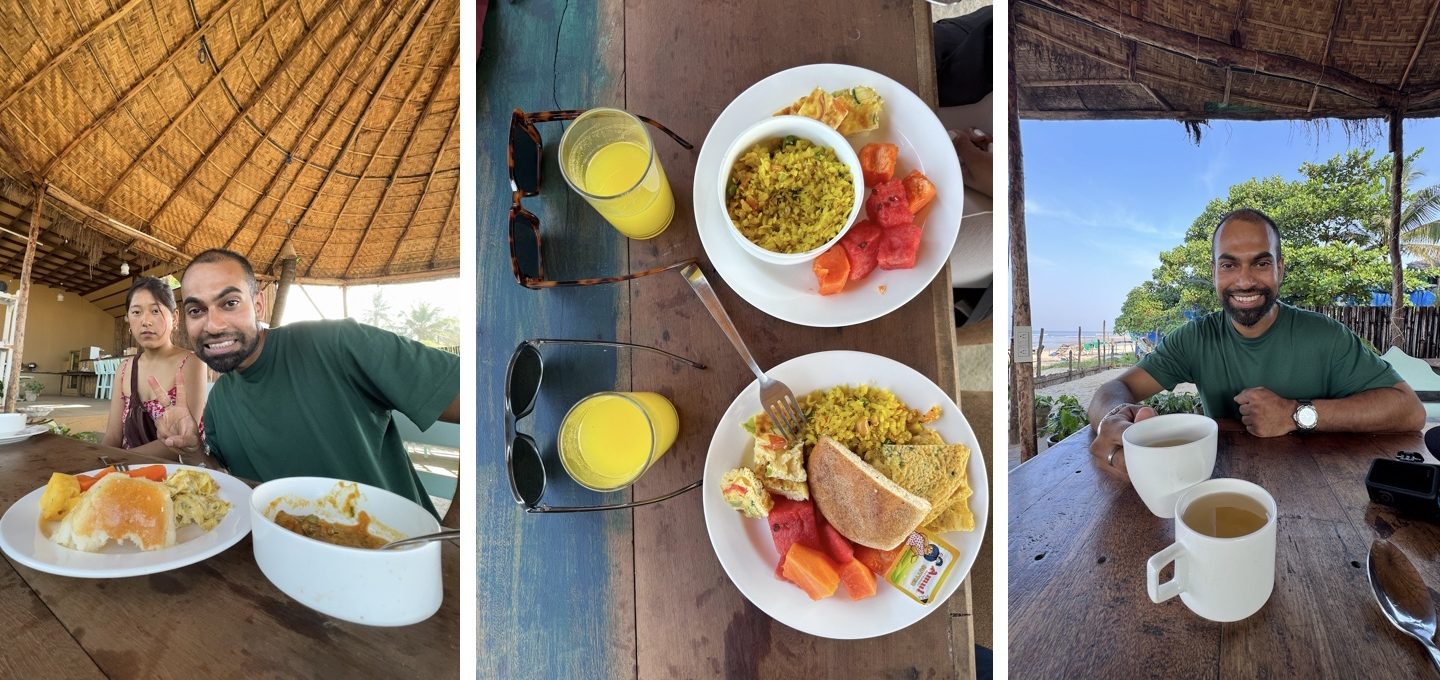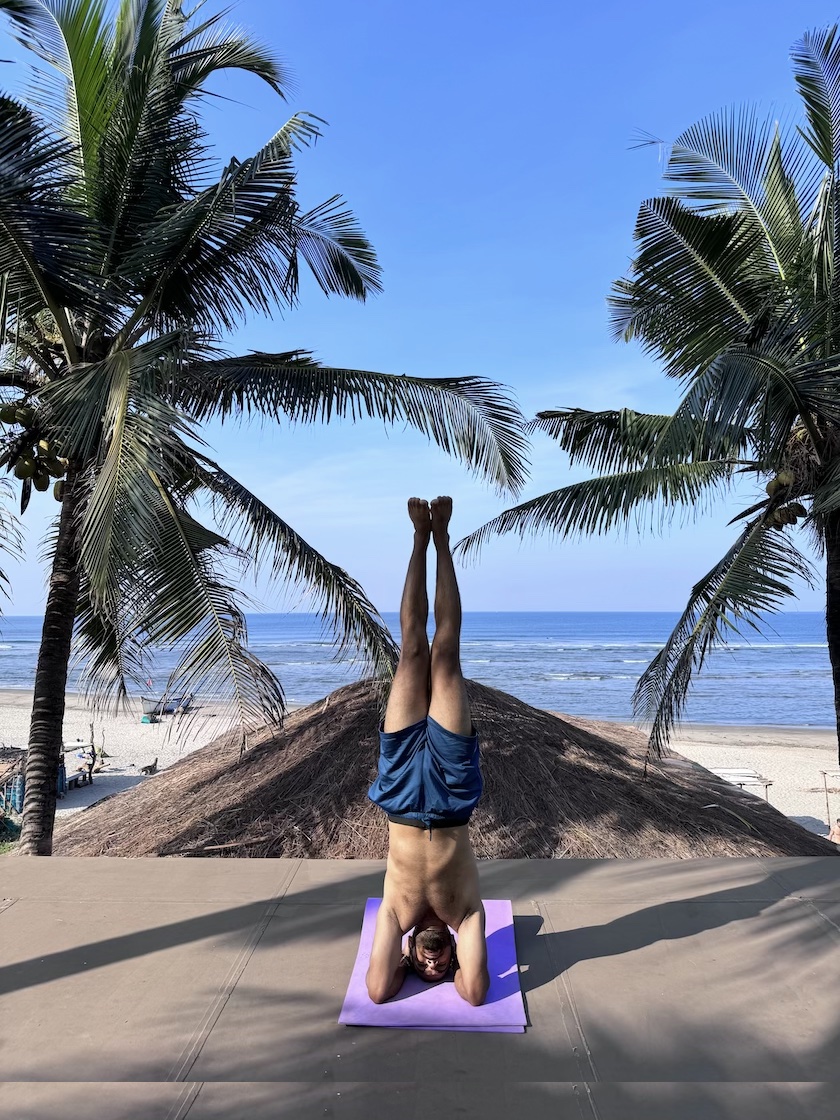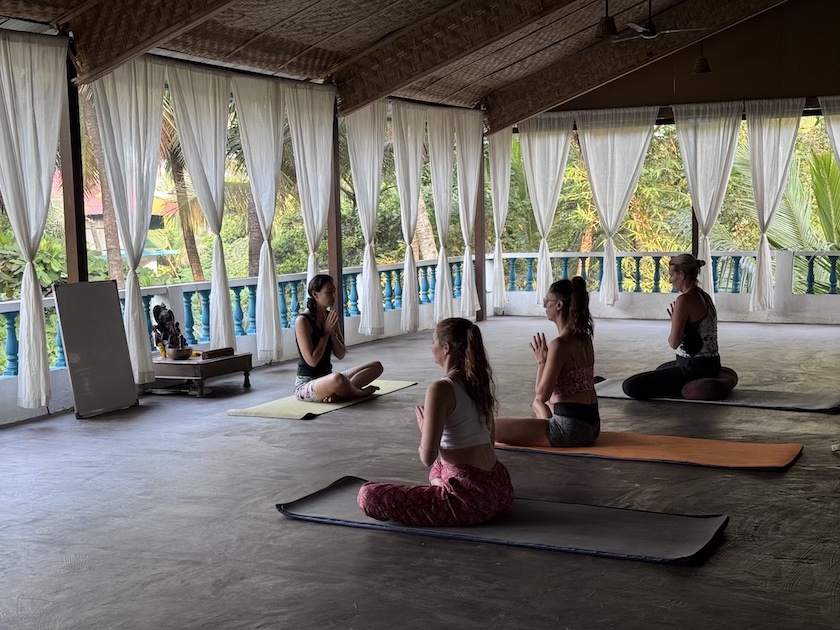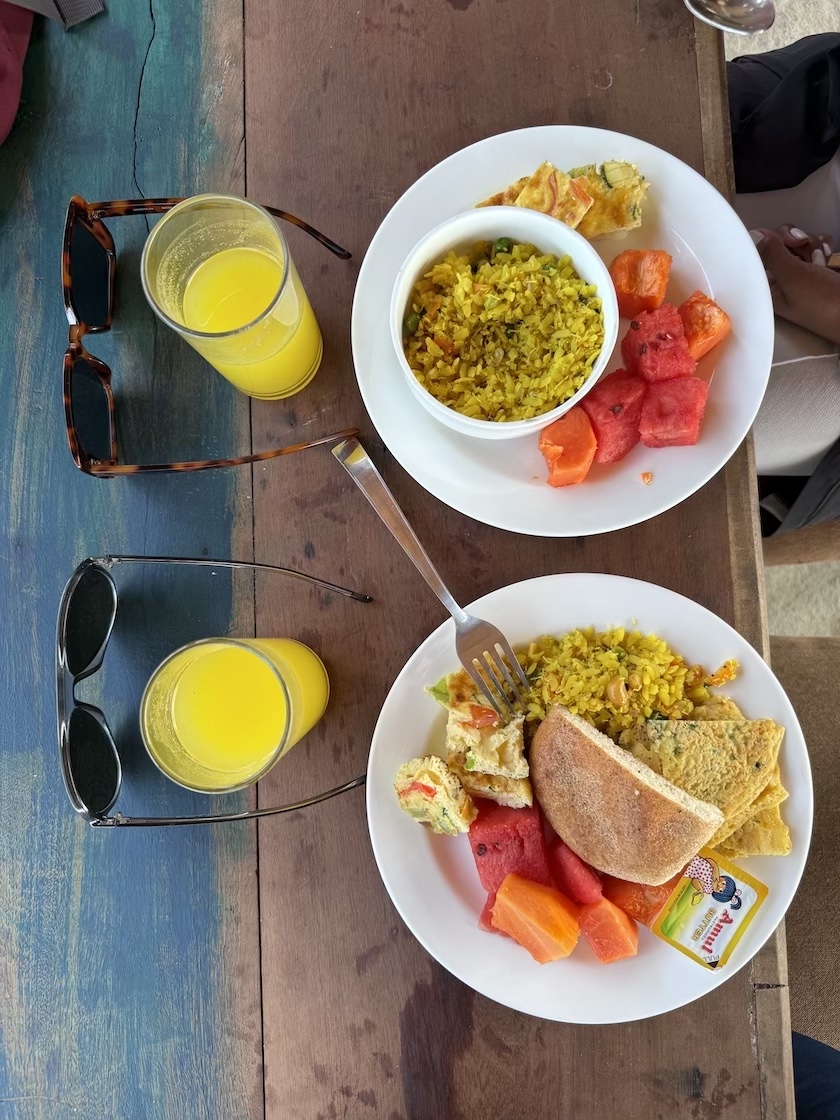Whether a road trip or a world tour, traveling is undoubtedly one of the most energizing and exciting experiences. However, like all good things, it certainly comes with its ups and downs, among which maintaining a healthy diet is quite a common concern.
For example, right now I am in Goa, on a 1-month backpacking trip, maintaining a healthy routine is essential for me if I want to enjoy the journey.
I follow a few strict habits and eat well while travelling.
Hence, I’ve compiled a healthy travel nutrition guide from my experiences over the years. If you’ve got lingering questions about what to eat when you’re out traveling, this step-by-step guide is here to answer your questions.
In this article, I have covered everything from when you leave your house to when you reach your destination.
Before You Embark On Your Destination
Although it may seem impossible, eating healthy while traveling isn’t too much of a puzzle when you plan well, and that’s precisely what we will tackle here.
1. Plan to Avoid Unhealthy Choices
Step one to maintaining a healthy diet would require some research, so check the area you choose to stay in. Find the nearest grocery stores, farmer’s markets, and nutritious local foods. Doing this makes you closer to prioritizing your nutrition and making affordable travelling and eating choices.
2. Carry Healthy, Non-Perishable Snacks
Even if you stick to eating healthy, a long, tiring day could lead to unhealthy habits. After all, a quick street food snack is always tempting, which is handy when packing various nutritious snacks with a long shelf life. There is an endless list of travel-friendly foods such as crackers and chips, nuts, snack bars, jerky, and more.
If you’re on a fitness-centric diet, you may want to choose whey protein bars considering they contain essential micronutrients like potassium, calcium, and iron and are high in calories and fiber. Snacking on these will keep your hunger, blood sugar levels, as well as energy in check.
3. Book a Stay with a Mini Kitchen/Fridge
Numerous hotels, rentals, and Airbnb offer accommodations with modular kitchens or a simple kitchenette, which should be fine. Choosing this is not only one of the most economical ways to eat healthy, but you can control what does and doesn’t go into your diet.
If you are still looking for such provisions where you stay, you can ask for basic appliances such as a mini fridge, kettle, and blenders. These appliances are great for whipping quick salads, smoothies, or steamed veggies.
Nutrition In Between Destinations
4. Stay Hydrated
Drinking plenty of water is non-negotiable if you’re focusing on a healthy diet, and this applies to your entire journey, from home to destination to back. Staying hydrated is especially crucial because there is a rise in cabin pressure during air travel, which reduces the moisture levels of the aircraft.
If you haven’t had enough water, this can cause dehydration if you’re not already well hydrated, and some of the symptoms include dizziness, rapid breathing, or even fainting. That’s why travelers are always advised to drink water throughout their journey.
5. Choose Nutrient-Rich Foods
When you’re on the flight, skipping meals served on board might not be a wrong choice, considering they have tons of empty calories. Plus, many airlines these days don’t offer dining services, but TSA does allow non-liquid foods. So, you should stop by a store at the airport and choose a substantial meal to carry with you.
Airports usually have restaurants and coffee shops with a healthy selection of salads, cold sandwiches, fruit cups, or pre-cut veggies with dips like hummus, nut butter, Greek yoghurt, and more. To avoid spillage or spoilage, pack it safely and watch out for the expiration dates of such items.
6. Choose Your Beverages Carefully
When flying, you must avoid alcoholic and caffeinated drinks because they can dehydrate your body and drain your energy. Apart from its apparent defects in a healthy lifestyle, they also contain a lot of sugar that can cause inflammation, and that’s a type of discomfort you certainly don’t want to experience in the air. Considering this, tea will be your best bet; if you carry your tea bags, all you have to do is ask for some hot water. This way, you’re avoiding uneasiness while also staying hydrated.
Upon Arriving At Your Destination
7. Never Ever Skip Your Breakfast
The emphasis on having your breakfast should come as no surprise, especially when traveling. Whatever you eat in the morning sets the tone for your entire day because it gives your body essential fuel to power up. It helps manage blood sugar and improves metabolic activity, which keeps you from getting lazy when you want to sightsee and go on adventures.
8. Carry A Water Bottle And Snacks
Besides your first meal, snacking on healthy foods and drinking plenty of water as you explore is vital to maintaining your energy throughout the trip. We mention carrying your bottle because drinking water outside could become a nightmare if contaminated.
Remember the snacks we asked you to pack before leaving? Those protein-rich snacks will fill your tummy and prevent you from going on a binge-eating spree. Also, by doing this, you will spend less, and if you’re traveling on a budget, that’s another bonus.
9. Choose Healthy Restaurants When You Eat Out
Undoubtedly, you won’t feel like cooking when on vacation, but you must try making your meals as much as possible. Although, when you’re just not up for it, you can visit renowned restaurants serving local cuisine. Avoid eating at fast food joints because their high-caloric foods will only make you lazy.
Be mindful of the nutrients and portions when ordering your food. Choose lean proteins, whole grains, and vegetables. When traveling alone, you can request the server for half the portion size to avoid overeating. Another way you can keep a check on what you eat is to order grilled, boiled, steamed, or broiled foods instead of fried ones.
10. Bonus Tip For Your Digestive Health
Probiotics are a godsend when it comes to maintaining a healthy gut biome. Traveling to different locations means inevitable exposure to other microbes, and despite all the effort you put into eating well, you may have to deal with stomach issues from time to time. So, daily probiotics will improve your immunity and ensure your gut fights harmful germs.
You can also make it a habit to consume digestive bitters after each meal because it will help with an inflamed gut or acid reflux. Lastly, if constipation decides to visit you, keeping magnesium citrate will permanently save the day.
Conclusion
To wrap it up, traveling doesn’t necessarily mean you must sacrifice tasty foods, nor does it mean destroying your healthy diet. You can enjoy yourself and give your palate the treat it deserves as long as you eat mindfully and follow our tips. It’s all about balance and knowing where to draw the line.







